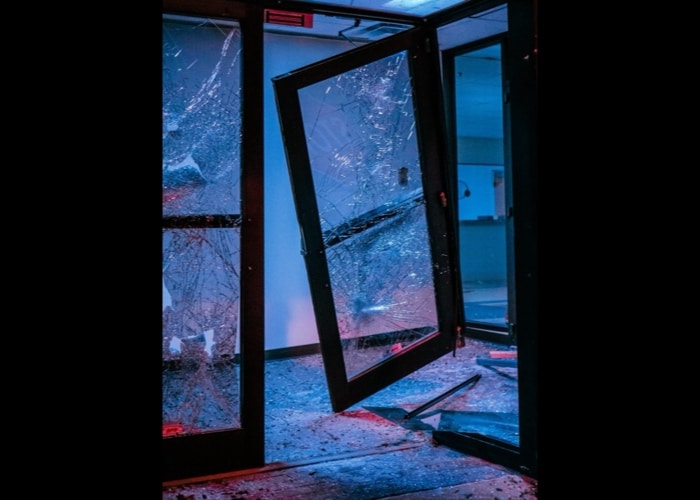Today’s active shooter at Annunciation Catholic Church underscores dangers of false Episcopal claims of threatening behavior and domestic terrorism
Details are thin this morning about the active shooter at Annunciation Catholic Church and School in Minneapolis. However, the situation underscores the dangers of fabricated claims of threatening behavior and domestic terrorism by Episcopal clergy. These dangers include:
- The risk that “crying wolf” will result in a delayed or ineffective law enforcement response to security crises at Episcopal churches and schools.
- The possibility of creating self-fulfilling prophecies by drawing attention to threats that don’t actually yet exist.
- Discrimination against persons with mental illness due to tired and discredited tropes in which church officials falsely portray mental illness as a precursor to violence.
- Distracting from the real need to improve security at Episcopal churches, schools, diocesan headquarters, and other facilities.
- Discrediting the church’s claim to “respect the dignity of every human being.”
We discuss several of these issues below.
The prevalence of fabricated claims of threatening behavior in the Episcopal Church
Assessing these issues requires that we start by looking at how common false claims of “domestic terrorism” and threatening behavior are within the Episcopal Church. In our experience, such fabrications are alarmingly common.
Specific examples include:
- The outrageous behavior at St. Thomas Church Fifth Avenue, in which both the Diocese of New York and the parish falsely accused a victim of sexual assault of being a “domestic terrorist.”
- The Episcopal Diocese of Chicago and priest Will Bouvel, who falsely accused church member David Duggan of stalking over the letter’s objections to ordaining Bouvel; these objections were based on Bouvel’s sexual orientation.
- Episcopal priest Rebecca Roberts and the Episcopal Diocese of Central New York, which have falsely accused parishioner Win Limmer of engaging in threatening behavior, including stalking.
- And many others. Look around this site and you’ll quickly see it had its genesis in the fabrications and criminal conduct of a particular Episcopal priest.
Lack of accountability
To make matters worse, Episcopal judicatories invariably think that lying about church members being “domestic terrorists” is okay. That, despite the bit about “respecting the dignity of every human being.”
Why do bishops and others think this behavior is acceptable? There are multiple answers, but that’s more than we can cover in one post — or even a series of posts.
But the results of this lack of accountability are obvious and painful.
Within the church, this sort of behavior signals to members that it’s okay to lie about others in order to get one’s way. In other words, it’s behavior that rapidly makes toxic whole swathes of the denomination.
Lies distract from the need for meaningful security
When Episcopal clergy lie about parishioners, they also divert time and attention from the real need to improve security in houses of worship.
To be clear, churches will always struggle between the desire to be welcoming and the need for security. That said, most churches are ridiculously soft targets, marked by unlocked doors and windows, poor external lighting, overly broad access to the building, and lack of planning for an emergency.
Consider: If Saint Thomas Church Fifth Avenue had spent just a portion of the time and energy wasted on recent issues on matters like preventing sexual assault, or ensuring that a prominent pornographer doesn’t live with boys in the choir school, where would it be today?
The answer, we suspect, is that it would be in a far different place.
Lies may delay a police response in an emergency
Relatedly, law enforcement officials we interviewed, including an expert on active shooters, consistently warned against crying wolf in these situations.
“I can’t over-emphasize the importance of not playing games with these issues,” said the head of the active shooter training program at one major police department. “Cops and dispatchers are human, and if we know that a particular church or school likes to cry wolf, we may feel that we have to verify the threat before we jump in feet-first,” he says.
The chief of police of another department near Washington, DC, echoed these concerns:
“There is nothing more dangerous [than falsely claiming someone is a domestic terrorist.]
“As a department, we rely on the integrity of people who reach out to us for help. It is absolutely essential that people not make false or exaggerated claims about purported threats, especially at a time when police departments are struggling with staffing issues.
“When we get a call, we need to know we’re responding to a real threat, versus dealing with a squabble between a pastor and his church member,” he concluded.
And a police officer near one of the churches referenced earlier in this post was brutally candid:
“We’ve gotten a number of calls from [the church] claiming that he [the church member] is threatening people, obstructing traffic, and acting irrational. In every case, we’ve dispatched units only to discover that these have been lies. Everyone here hates dealing with bullshit like this, and I do my best to make sure I don’t get dispatched to calls at this church.
“Plus there’s no one here that respects this church or its members. Feel free to quote me but don’t use my name. And by the way, that’s a crazy bunch of [expletive deleted] at that church.”
Yikes. Just yikes.
And what does this mean if an active shooter situation arises?
We asked the officer referenced immediately above this question, and he was similarly direct:
“I don’t want to predict anything, but given the number of lies from that church, unless dispatch hears gunshots in the backrground, we’d almost certainly send one or two units to check things out. I mean, we can’t drop everything every time the crazy folks at this church call to complain that he [the church member] is protesting outside and that somehow is a threat. People need to learn what the First Amendment is,” he said.
“The real risk is that we don’t immediately respond to a real active shooter, or we don’t recognize that it really is an emergency, and we lose precious minutes, resulting in people dying unneccessarily. Don’t [expletive deleted] call us because there’s a protestor on your sidewalk,” he concluded.
While we could quote additional sources — and draw on our own experience — we feel like the message is clear: Don’t play games.
Just don’t.
Mental health experts weigh in
Anglican Watch also interviewed mental health professionals for this story. While no one wanted to be named in the story, they were consistent in their concerns about these issues.
“Lying about a church member and saying he’s a domestic terrorist is the ultimate betrayal of trust,” said one licensed clinical social worker who specializes in church trauma and PTSD. “As a result, making these claims hurts all involved and creates lasting harm to relationships within the church,” she added. “In other words, you may get rid of the parishioner, but at the end of the day, the church pays the price.”
Said another expert:
“I agree that lying about a church member is totally immoral,” she said. “It’s also really unhelpful to people who struggle with legitimate mental illness when clergy trade on these disproven and false stereotypes that mentally ill people are violent. And I see that all the time—clergy who suggest that someone is mentally ill and thus violent, even though there’s nothing to support those claims. Plus, most clergy have almost no mental health training.”
Implications for churches and their victims
Similarly, when churches falsely claim that members are stalkers or domestic terrorists, the churches do all involved a grave disservice.
“It’s just a joke when churches do this,” said abuse expert Dee Parsons of our sister blog, The Wartburg Watch.
“You have someone who’s often already hurt by the church who gets retraumatized,” she added. “The church just winds up looking bad and damaging their reputation. Often, the damage is irreparable, including to the victim hurt by the church’s lies,” she concluded.
Dee’s views coincide with our experience, which is that the Episcopal Church does itself profound harm when it falsely accuses church members of being domestic terrorists, stalkers, and more.
As we discussed previously, bishops and other judicatories often minimize the harm caused by these lies. “No Title IV panel is going to defrock a priest in a situation like this,” one bishop told Anglican Watch.
Of course, therein lies the problem. Making false reports to the police is a crime, while proffering false testimony in court is the criminal offense of perjury. And defamation/defamation per se may result in huge liability for the church and the Church Pension Group, the church’s captive insurance carrier. Yet bishops and disciplinary committees consistently are unwilling to address these issues.
In closing
In closing, we are not so optimistic as to think that anything we can say or do will result in the Episcopal Church learning to act with integrity.
But if judicatories and Episcopal clergy won’t stop calling parishioners they don’t like “domestic terrorists,” “stalkers,” and “mentally ill” because it’s the right thing to do, for the love of the almighty they need to stop with the nonsense for safety’s sake.
Police, other law enforcement, and the courts don’t need the Episcopal Church crying wolf at a time when gun violence is already much too prevalent in our society.
Our hearts go out to all affected by today’s horrific and senseless violence.

